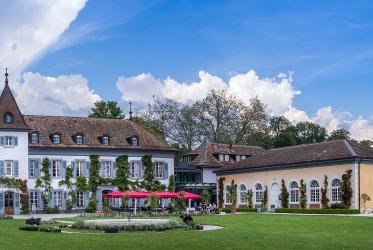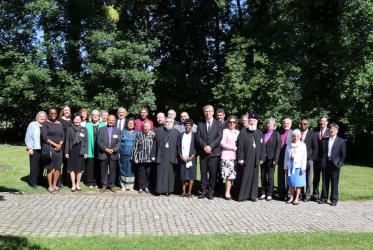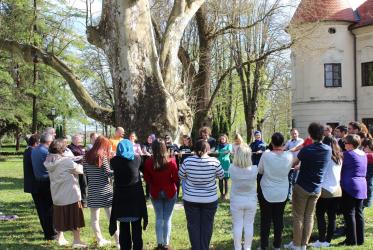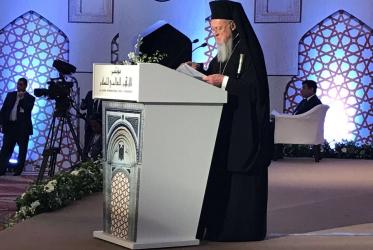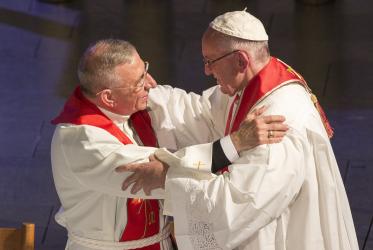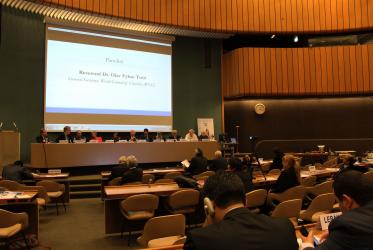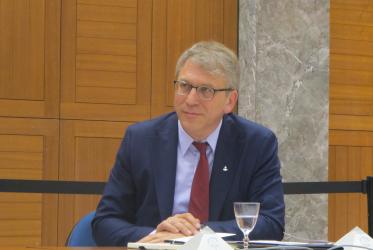Displaying 101 - 120 of 213
07 July 2017
WCC Executive Committee to focus on unity
08 June 2017
‘Love is stronger than hate’
02 May 2017
Islam and Christianity: finding the common ground
16 March 2017
“What can we contribute as a worldwide fellowship?”
06 March 2017
WCC general secretary speaks on religion and discrimination
14 February 2017
An interview with the Ethiopian Patriarch, Abune Matthias
14 February 2017
Churches in Norway and Pakistan break new ecumenical ground
26 January 2017
In Syria and Iraq, minorities must come out of the darkness
28 November 2016
What does ‘prudence’ mean for dialogue and peace-building?
16 November 2016
